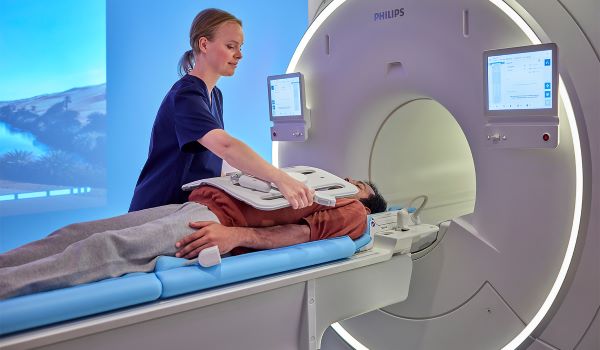Latest innovations feature vendor-neutral solutions to help reduce clinical complexity and enhance operational efficiency

Royal Philips, a global leader in health technology, announced its portfolio of smart diagnostic systems and transformative workflow solutions featured at the Radiological Society of North America (RSNA) annual meeting (November 27 – December 1, Chicago, USA). Powered by AI, the company will showcase its latest systems and informatics solutions designed for providers to efficiently deliver patient-centric, high-quality imaging services.
Radiology plays a critical role in diagnosing and guiding patients into the right treatment plans. However, with increasing staff shortages and workloads, radiologists and staff continue to struggle to manage and interpret the huge volume of data captured to provide quality care for each patient. In the recent Future Health Index 2022 report commissioned by Philips, 24% of radiology leaders surveyed stated that managing the sheer volume of data available to them is their top data-related issue, with nearly two-thirds (65%) indicating their staff are overwhelmed by data overload.
With smart intelligence built into imaging systems and informatics across the radiology workflow, Philips’ integrated solutions condense large volumes of data into patient-centric actionable insights for earlier and more definitive diagnosis and treatment.
Kees Wesdorp, Chief Business Leader of Precision Diagnosis at Philips, said: “With 47% of radiologists experiencing burnout [1], our customers are looking for innovations to help reduce their workloads and seamlessly integrate into their day-to-day operations,” said Kees Wesdorp, Chief Business Leader of Precision Diagnosis at Philips. “With smart intelligence built into imaging systems and informatics across the radiology workflow, Philips’ integrated solutions condense large volumes of data into patient-centric actionable insights for earlier and more definitive diagnosis and treatment.”
AI-powered solutions enhance operational efficiencies and simplify complex workflows
Some of the biggest challenges facing radiology leaders today are driven by managing complex, disconnected workflows which can negatively impact patient care, staff experience, outcomes, and cost. Visitors to the Philips booth (6730) at RSNA will see how the company’s latest interoperable and vendor-neutral operational solutions and strong portfolio of smart connected imaging systems help streamline and transform the radiology workflow to improve patient and staff experience; advance clinical and diagnostic confidence for better health outcomes; and drive a sustainable, resilient diagnostic infrastructure to help lower the cost of care. Featured at RSNA will be Philips’ AI-enabled technology [2] that automates and accelerates routine and repetitive tasks to generate patient-centric insights from large volumes of data to help improve productivity.
Solutions include Philips Imaging Orchestrator – ROCC (Radiology Operations Command Center) and Philips Ultrasound Collaboration Live, both pioneering the virtualization of radiology, extending care and collaboration beyond traditional models. Philips Imaging Orchestrator – ROCC, a vendor-neutral, multi-modality, multi-site telepresence solution provides advanced tele-acquisition capabilities and seamlessly connects imaging experts at a command center with technologists at scanning locations across an organization. Philips Ultrasound Collaboration Live tele-ultrasound, available on Philips ultrasound systems – EPIQ Elite and Affiniti – allows teams to securely video stream from their ultrasound system to a PC or mobile device for remote, on-demand access to clinical expertise regardless of location.
Philips will also introduce the latest in AI-enabled image interpretation to help prioritize patient worklists based on clinical outcomes and expand diagnostic capabilities with its new Philips Advanced Visualization Workspace, with enhanced features to automate reporting and help drive earlier and more definitive diagnosis. Also featured is Philips Enterprise Performance Analytics – PerformanceBridge – to enhance operational decision-making through a vendor-neutral, real-time data analysis solution to help improve productivity and reduce costs.

Subscribe To Our Newsletter & Stay Updated